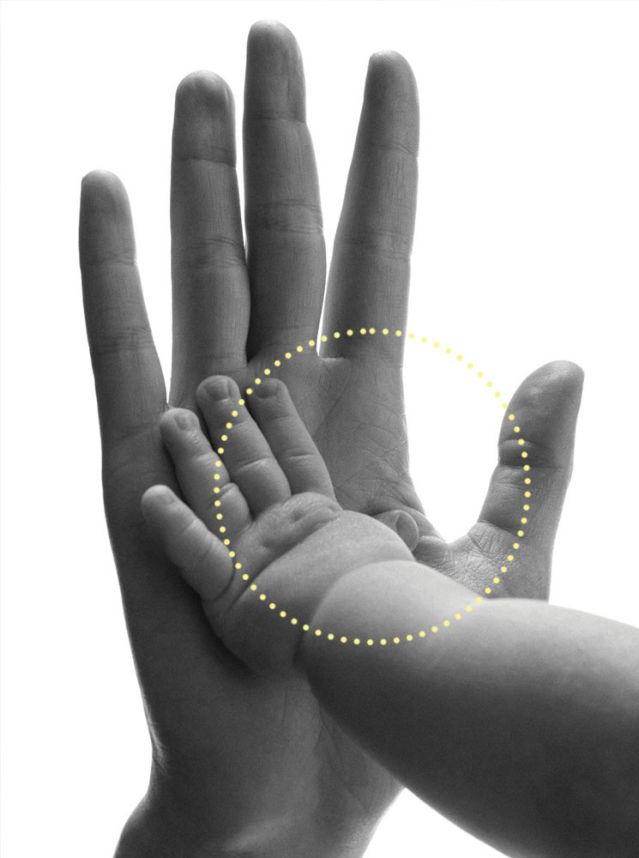
Tag Archives: Words of Wisdom
Words of Wisdom…


Random acts of kindness to heal humanity
We are bombarded with bad news on a daily basis. On a global level, we see and hear the horrific bombings and shootings to the hunger of our precious children in this world. Globally these feel far away to most of us as if we don’t have the ability to really make a difference on a global scale. We may experience this same feeling of being overwhelmed in our own lives, with being laid off of work to hearing our loved one was just recently diagnosed with cancer to a relationship breakup or simply not being able to find our keys amidst all of our stuff, which then makes us late for work. The possibilities are endless if we choose to focus on what battles we are facing or what we don’t have in life that we feel make us imperfect.
There is so much beauty in life and if we stay tuned in to the present moment we start to see the splendor all around us and if we choose to, we can be a part of this beauty and help it grow. Simply go to Dr. Google and type in positive news or good news and you will see the amazing things happening globally and even in our own back yard, listening to the excitement of the neighborhood children.
There have been many movies that give us inspiration in helping others and giving kindness to all. Pay It Forward was a fictional movie where an eleven-year-old child decides to participate in a random act of kindness and then asks the receiver to pay it forward to three other people. It then becomes a ripple effect and hundreds of people are affected by this deed. Another movie Little Red Wagon is based on a true story about a seven-year-old boy who founded an organization to aid the 1.3 million homeless children in the United States. He then walked 4,263 miles across the United States between 2007 and 2010 to help raise awareness and money for homeless children. We see these amazing stories on the big screen, but the truth is that random acts of kindness are happening around us all of the time.
When we focus on the positive things in life they will grow and when we spread kindness and joy to others it will grow, the ripples will continue on a global scale and one by one all of us can help heal humanity and ourselves by a simple act of kindness.
There are so many ways that one can spread kindness, simply offering a smile, lending a hand to someone who needs help, sending a letter to someone, complimenting a total stranger, creating colorful lunch bags for the homeless that contain lots of goodies, handing a flower out to random people walking down the street, giving up your place in line to another, and if you’re really determined to spread this love and kindness get a group together where weekly or monthly you come up with ideas of helping others in some way and you do it as a team. You don’t have to spend a ton of money to spread kindness, you can simply give from your heart.
Studies have shown that when we spread kindness to others, not only does it help heal the recipient, it also creates many health benefits for the giver. According to this research, kindness lowers blood pressure by increasing Oxytocin which releases a chemical called nitric oxide, which dilates the blood vessels. Kindness increases happiness according to a study done at Harvard Business School surveying 136 countries. Kindness increases the oxytocin, the “love hormone”. Kindness reduces anxiety according to a study conducted at the University of British Colombia, where individuals performed at least six acts of kindness a week. Researchers found after a month there was a significant increase in a positive mood, a decrease in anxiety, and an increase in relationship satisfaction. Kindness decreases pain by increasing endorphins, which are natural painkillers. Kindness increases serotonin, a feel-good hormone, which decreases depression. A study conducted at Case Western Reserve University School of Medicine found that kindness delays mortality reduces depression and increases life satisfaction. Kindness increases energy levels according to a study at UC Berkley. Kindness reduces stress by decreasing cortisol levels, the stress hormone.
The amazing thing about giving kindness is that not only will it help you heal, it also has similar effects for the recipient and the ripple begins and soon the ripples in the river will reach all of humanity and feed each one of us because when we spread kindness and feel joy others will too! I challenge each and every one of you to start implementing random acts of kindness today and reap the benefits for yourself and the world!

Words of Wisdom…

Start your day with a smile for yourself in the mirror. Do that every day & see the difference it makes in your life.
Your smile will give you a positive countenance and a better attitude that will make people feel comfortable around you.
We understand the power of a touch, a smile, a kind word, and a listening ear an honest compliment has the power to turn a life around.

Smile Quotes That Will Make Your Day Beautiful
- If you see someone without a smile give them one of yours. …
- Because of your smile, you make life more beautiful. …
- Peace begins with a smile. …
- Let us always meet each other with smile, for the smile is the beginning of love. …
- I love those who can smile in trouble.
The Power of Touch
Touch is the first sense we acquire and the secret weapon in many a successful relationship. Here’s how to regain fluency in your first language.

You’re in a crowded subway car on a Tuesday morning, or perhaps on a city bus. Still-sleepy commuters, lulled by vibrations, remain hushed, yet silently broadcast their thoughts.
A toddler in his stroller looks warily at his fellow passengers, brows stitched with concern. He turns to Mom for reassurance, reaching out a small hand. She quietly takes it, squeezes, and releases. He relaxes, smiles, turns away—then back to Mom. She takes his hand again: squeeze and release.
A twenty-something in a skirt and blazer sits stiffly, a leather-bound portfolio on her lap. She repeatedly pushes a few blonde wisps off her face, then touches her neck, her subconscious movements both revealing and relieving her anxiety about her 9 a.m. interview.
A couple propped against a pole shares messages of affection; she rubs his arms with her hands, he nuzzles his face in her hair.
A middle-aged woman, squished into a corner, assuredly bumps the young man beside her with some elbow and hip. The message is clear; he instantly adjusts to make room.

Probing our ability to communicate nonverbally is hardly a new psychological tack; researchers have long documented the complex emotions and desires that our posture, motions, and expressions reveal. Yet until recently, the idea that people can impart and interpret emotional content via another nonverbal modality—touch—seemed iffy, even to researchers, such as DePauw University psychologist Matthew Hertenstein, who study it. In 2009, he demonstrated that we have an innate ability to decode emotions via touch alone. In a series of studies, Hertenstein had volunteers attempt to communicate a list of emotions to a blindfolded stranger solely through touch. Many participants were apprehensive about the experiment. “This is a touch-phobic society,” he says. “We’re not used to touching strangers, or even our friends, necessarily.”
But touch they did—it was, after all, for science. The results suggest that for all our caution about touching, we come equipped with an ability to send and receive emotional signals solely by doing so. Participants communicated eight distinct emotions—anger, fear, disgust, love, gratitude, sympathy, happiness, and sadness—with accuracy rates as high as 78 percent. “I was surprised,” Hertenstein admits. “I thought the accuracy would be at chance level,” about 25 percent.
Previous studies by Hertenstein and others have produced similar findings abroad, including in Spain (where people were better at communicating via touch than in America) and the U.K. Research has also been conducted in Pakistan and Turkey. “Everywhere we’ve studied this, people seem able to do it,” he says.
Indeed, we appear to be wired to interpret the touch of our fellow humans. A study providing evidence of this ability was published in 2012 by a team who used fMRI scans to measure brain activation in people being touched. The subjects, all heterosexual males, were shown a video of a man or a woman who was purportedly touching them on the leg. Unsurprisingly, subjects rated the experience of male touch as less pleasant. Brain scans revealed that a part of the brain called the primary somatosensory cortex responded more sharply to a woman’s touch than to a man’s. But here’s the twist: The videos were fake. It was always a woman touching the subjects.
The results were startling, because the primary somatosensory cortex had been thought to encode only basic qualities of touch, such as smoothness or pressure. That its activity varied depending on whom subjects believed was touching them suggests that the emotional and social components of touch are all but inseparable from physical sensations. “When you’re being touched by another person, your brain isn’t set up to give you the objective qualities of that touch,” says study coauthor Michael Spezio, a psychologist at Scripps College. “The entire experience is affected by your social evaluation of the person touching you.”
If touch is a language, it seems we instinctively know how to use it. But apparently it’s a skill we take for granted. When asked about it, the subjects in Hertenstein’s studies consistently underestimated their ability to communicate via touch—even while their actions suggested that touch may in fact be more versatile than voice, facial expression, and other modalities for expressing emotion.
“With the face and voice, in general we can identify just one or two positive signals that are not confused with each other,” says Hertenstein. For example, joy is the only positive emotion that has been reliably decoded in studies of the face. Meanwhile, his research shows that touch can communicate multiple positive emotions: joy, love, gratitude, and sympathy. Scientists used to believe touching was simply a means of enhancing messages signaled through speech or body language, “but it seems instead that touch is a much more nuanced, sophisticated, and precise way to communicate emotions,” Hertenstein says.
It may also increase the speed of communication: “If you’re close enough to touch, it’s often the easiest way to signal something,” says Laura Guerrero, coauthor of Close Encounters: Communication in Relationships, who researches nonverbal and emotional communication at Arizona State University. This immediacy is particularly noteworthy when it comes to bonding. “We feel more connected to someone if they touch us,” Guerrero notes.
There’s no phrase book to translate the language of touch; if anything, experts have barely begun documenting its grammar and vocabulary. “We found that there are many different ways to indicate a given emotion through touch,” Hertenstein notes. What’s more, how a touch gets interpreted is very context dependent. “Whether we’re at the doctor’s office or in a nightclub plays a huge role in how the brain responds to the same type of contact,” Spezio explains. Still, examining some of the notable ways that we communicate and bond through touch (and how we develop the capacity to do so) reveals the versatility of this tool and suggests ways to make better use of it. There’s much to be gained from embracing our tactile sense—in particular, more positive interactions and a deeper sense of connection with others.

Filed under Power of touch, Smiles, Uncategorized, Words of Wisdom
